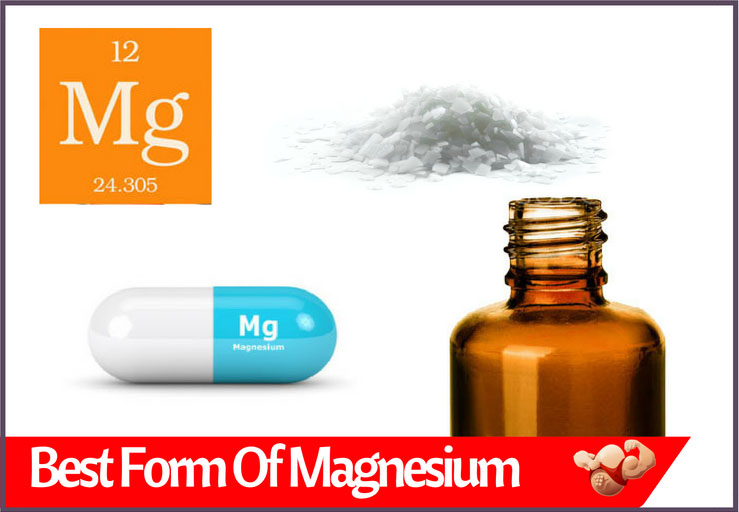Magnesium Supplement Reviews
Magnesium is an important mineral for our health as it is involved in over 300 biochemical processes. When our magnesium levels run low, several health conditions may arise. Magnesium deficiency can cause vomiting, muscle pain and anxiety. A great way to increase magnesium levels is to use a magnesium supplement. But, how do you know what supplement to take?
Here you will find up-to-date guides and reviews of magnesium supplements to help you make an informed decision of what to buy.
More Info On Magnesium Supplements….
Benefits
Magnesium supplements offer an array of benefits for the body. Magnesium taken orally is an effective method of boosting the levels of magnesium within your body. If you’re suffering from a deficiency, using a magnesium supplement is highly recommended.
Oral supplements travel down through the digestive system, where they’re broken down by stomach acids before being absorbed. Every individual has varying absorption levels and while it’s possible to consume too much magnesium, excess levels are excreted by the kidneys, so you don’t suffer the effects of toxicity.
The Differing Types
Magnesium supplements are offered in various forms. There are capsules, liquid and powder. The formulation will differ depending on the brand you purchase, as well as the amount of magnesium within the supplement.
- Mineral salts – This form is usually found in the sea or nature and includes magnesium chloride, oxide and sulfate.
- Magnesium chloride – The form of magnesium with the highest bioavailability, magnesium chloride is effective in purifying tissues and detoxifying cells. Chloride is required by the body to produce gastric acid and it fuses with hydrogen to produce hydrogen chloride in the stomach. This digestive enzyme breaks down proteins and absorbs other minerals. With no chloride in the body, muscle movement and correct kidney function are reduced, therefore, magnesium chloride is highly important.
- Magnesium oxide – This is one of the least absorbable forms of magnesium, so it’s not recommended for increasing the levels of magnesium in your body.
- Magnesium acid complexes – These supplements include magnesium that is bonded with acids in a lab environment. These compounds are not formed from food or plants and normally include magnesium malate, magnesium gluconate, and magnesium citrate.
- Magnesium chelates – Chelated magnesium is formed when magnesium is bonded to an amino acid including nitrogen. This type of supplement tends to be more expensive due to the chemical processes needed to produce the chelated magnesium. Magnesium chelates are easily absorbed by the body and include magnesium glycinate, magnesium lysinate and magnesium taurate.
Types of Magnesium
For more information on the different forms of magnesium you can buy and what is best depending on symptoms please check out our guide here.

Magnesium Supplement Uses
While you can purchase transdermal types of magnesium to be applied topically, magnesium supplements taken orally can be bought in tablet form, powder or liquid. The type you buy will depend on your preferences. If you prefer taking traditional forms of supplement,then tablets or capsules will be the form for you.
You may need to consume one to three tablets daily, depending on the brand and strength of magnesium in each tablet. Adults require between 300 – 400mg of magnesium daily in order to avoid a deficiency (1), so ensure you check how much magnesium is supplied.
In powder form, the supplement is normally mixed with water and then consumed as a beverage. This type of magnesium is perfect for those who struggle to consume tablets, as well as being cost effective. Many brands offer flavoured supplements to make it enjoyable to take.
Liquid form can be consumed from a spoon, just ensure that you’ve checked how much you need to take as it will differ between brands. Liquid magnesium is absorbed more easily than tablets as the magnesium is already dissolved. This type is ideal for children.
What Magnesium Supplements Do
For Relaxation
Magnesium supplements help to alleviate stress, anxiety and tension to allow for a better night’s sleep. Taking a magnesium drink an hour before bed is perfect for helping you to unwind, so you can achieve several hours sleep. This will help to improve energy levels and fatigue as you’ll feel much fresher and brighter.
For Muscles
Muscle aches and pains is one of the main symptoms of a magnesium deficiency. To relieve muscle spasms and soreness, take your magnesium supplement daily. As your magnesium levels start to increase, the pain will begin to subside. If you partake in lots of exercise, magnesium supplements are recommended.
For Calcium Regulation
Some magnesium supplements contain calcium as magnesium helps to transport it to cell membranes. Both calcium and magnesium are highly important for bones; at least 60% of magnesium within your body is stored within your bones.
For Digestion
Magnesium helps to relax your muscles to relieve constipation. Furthermore, it neutralises acid within the stomach and boosts your overall digestive system.
For Kids
While they may be young, children still need to consume magnesium. Between the ages of birth to 13 years of age, children need 30mg to 240mg daily, depending on their age. Children can be hard to please when it comes to diet, so getting them to eat foods rich in magnesium, such as green leafy vegetables and bananas may be challenging.
A magnesium supplement is perfect as it will help your child to avoid a deficiency. As children may struggle to take capsules or tablets, consuming liquid magnesium or a drink is highly recommended. Liquid, especially, is easily absorbed and will boost magnesium levels quickly.
For Energy Levels
Magnesium helps to produce energy within the body by activating the ATP. This alleviates fatigue and will improve your overall mood as you’ll have more energy to participate in exercise.
For Heart Health
Magnesium is essential for a healthy heart. The largest amount of magnesium within your body (other than that stored in your bones) is within your heart. Furthermore, magnesium works in unison with calcium to prevent hypertension and support blood pressure.
For Migraines
Magnesium is involved in blood circulation and assists in the release of hormones that reduce pain. This helps to alleviate migraines and bad headaches.
For Diabetes
Studies have shown that magnesium has been linked to playing a role in diabetes. Those with low levels of magnesium are reported to have elevated insulin levels.
Magnesium is thought to protect against type 2 diabetes, as well as regulating glucose. Therefore, it’s important to ensure that you’re consuming the recommended daily amount of magnesium for your age and sex.
Side Effects Of Magnesium Supplements
Magnesium supplements have minimum side effects. Some people who use magnesium supplements like tablets for the first timesuffer from an irritated stomach or diarrhoea. If this occurs, reduce your dosage.
Taking excess magnesium is not advised. Magnesium overdose is very rare but it can happen if your take too much magnesium. Remember to consider your diet when taking supplements as the magnesium from your food intake counts towards your recommended daily intake.
Magnesium supplements should not be taken by people with regular loose bowel movements, specific heart conditions or if you suffer from kidney trouble.
Some medications can also interact with magnesium supplements. Antibiotics, bisphosphonates, muscle relaxants, medication for high blood pressure and water pills can all be affected as magnesium can cause them not to work adequately. Make sure you consult your doctor before taking any supplement if you’re on any medication.
Do Magnesium Supplements Really Work?
Magnesium supplements are known to increase levels of magnesium within the body. Studies have demonstrated that many people taking supplements receive more than the recommended daily amount of magnesium (1). Liquid magnesium tends to be better absorbed by the body as its already been dissolved.
Oral supplements also contain a higher amount of magnesium than topical forms, so it’s best to check the amount before you consume. However, you have to remember that oral supplements need to travel through the digestive system,where some of it will be eliminated by the kidneys as waste.
Some studies have shown that high levels of magnesium can lower the risk of heart disease (2). Furthermore, an extra 100mg of magnesium per day can decrease the risk of a stroke (1). While a healthy diet can provide the recommended daily amount of magnesium, taking a supplement will help to give your body the higher levels to offer this protection.
It’s difficult to consume too much magnesium, unless you suffer from specific health conditions like kidney problems. Therefore, be reassured that taking a magnesium supplement is massively beneficial for your health.
Where To Buy Magnesium Supplements
Magnesium supplements can be purchased from grocery stores, health stores, chemists and online shops. The best place to purchase online is Amazon, where you can select from varying products and brands.
Picking A Supplement To Buy:
Picking a magnesium supplement can be quite the mind field. So to help you on your way we have created a guide. You can find this information here.

More Information
We have many resources on the site to help you in your quest to know everything there is about Magnesium. We also have a health supplement review section if there are other supplements you are interested in.
